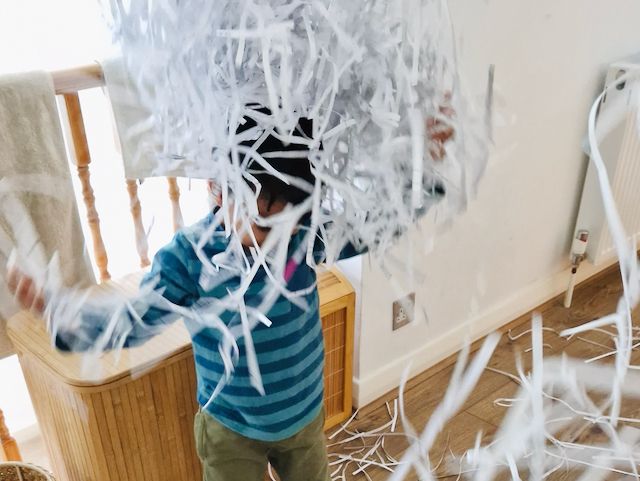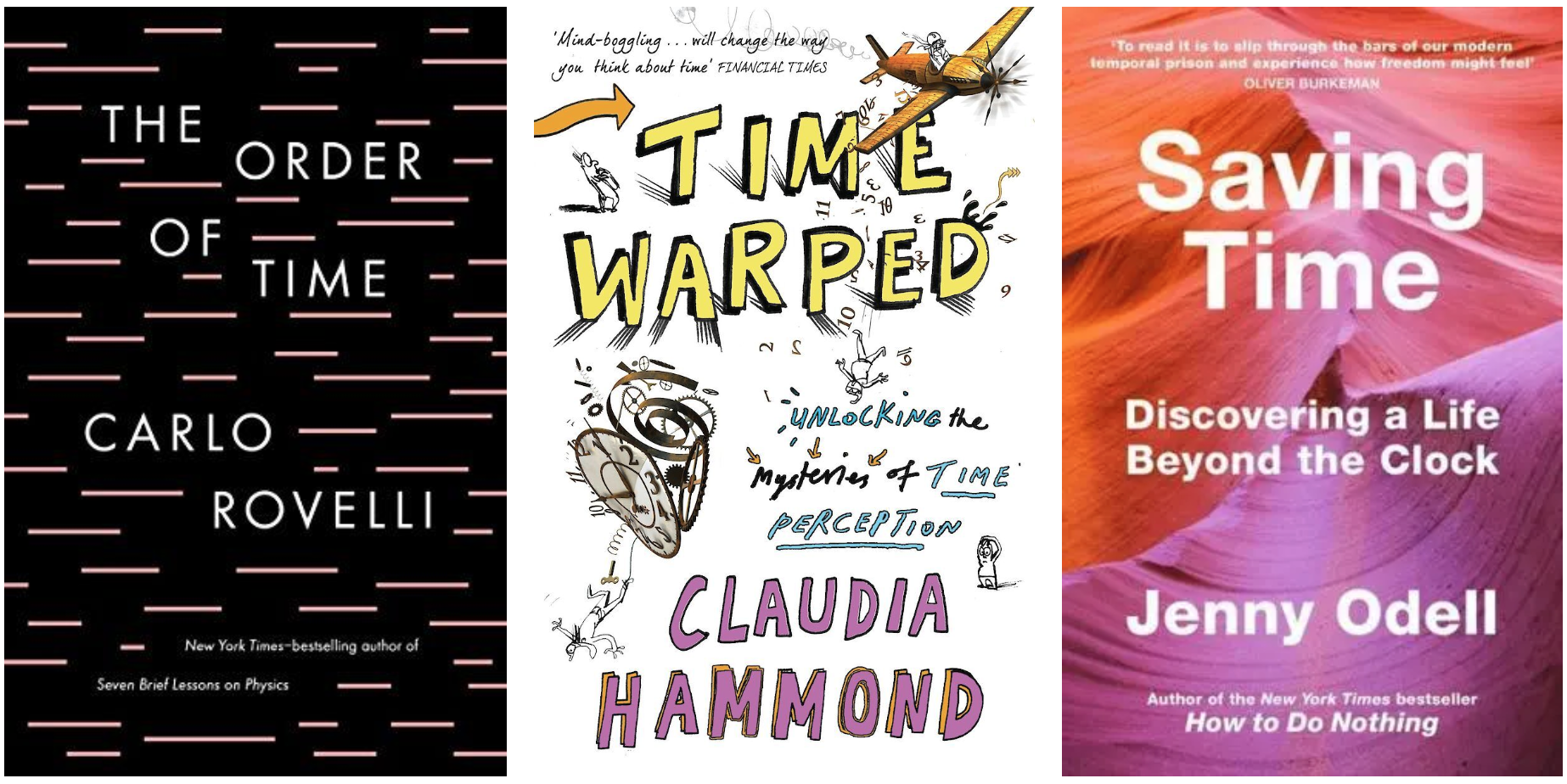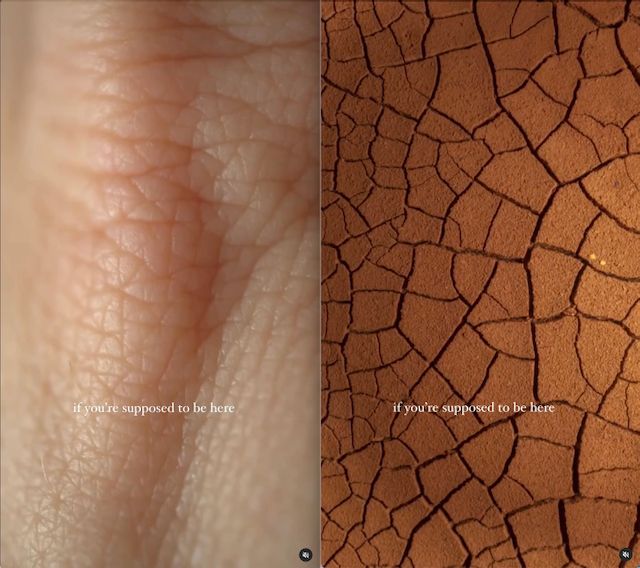Stretchiness of Time
Not all minutes are made equal. Some flash past in stealth mode, and others inch forward like an old man in a high-vis jacket. That's because there are (at least) two very different things we mean when we talk about time.

Hello, Good Lookers,
Have you noticed how time expands and contracts?
It's Menka here, and you're reading the Just Looking Letter - a monthly reminder to slow down and notice more of the mundane, overlooked and invisible parts of our lives. Today, we are looking at time itself.
Plus: here's a podcast I spoke on recently with host Karim Rushdy. He named it "Untangling Ourselves from Technology" because we did chat about that quite a bit. But we also talked about my childhood, how I first got into mindfulness, why I appreciate spiders so much, and my intentions for this Just Looking project!
About the Stretchiness of Time
Not all minutes are made equal. Some flash past in stealth mode, and others inch forward like an old man in a high-vis jacket.
On one level, this is absurd because, well, a minute is a minute. But in practice, there are (at least) two very different things we mean when we talk about time.
Clock time
One is clock time. The tick-tock background to our lives. The tracking of time in units of measurement that have been agreed upon by humans as common reference points.
Modern mechanical clocks, specifically, are a very recent invention, but we've long had sophisticated ways of marking out the passage of time using natural phenomena such as the sun, moon, stars, tides and seasons.
On an everyday scale, we're extremely good at working with this kind of time:
In lab tests, people can distinguish between sounds as little as five milliseconds apart, and our involuntary timing is even quicker. If you’re hiking through a jungle and a tiger growls in the underbrush, your brain will instantly home in on the sound by comparing when it reached each of your ears, and triangulating between the three points. The difference can be as little as nine-millionths of a second.
- Dr Eagleman, neuroscientist (ref)
That's nine-millionths of a second! Amazing. No wonder a trained dancer can keep a beat down so perfectly. No wonder we can judge just how much time is left to run a green light. No wonder the slightest time lag on a Zoom call can jar so much.
Time of this nature is seen as being external to us. It marches on. It waits for no man. Nobody can stop the hands of time. Cliched time sayings like this exist in every language that I know of. And because we view it as being external to us, we often describe it as a resource - to have, organise, sell, save or squander.
Whether we're great at time management, or really struggling with it at the moment, it's safe to say we are all extremely familiar with how external time works.

Brain time
The second kind of time is our inner perception of time. This is an internal gauge of the speed of our lives, which is personal to each of us. In many ways, it's the opposite of a clock or a repeating rhythm because it's very stretchy. This isn't breaking news, but it is a truth that we don't talk much about in polite society, except for occasional comments such as "The weekend went by so quickly!".
“Put your hand on a hot stove for a minute, and it seems like an hour. Sit with a pretty girl for an hour, and it seems like a minute. That’s relativity.”
- Albert Einstein
Some researchers refer to this as "Brain time" because it only exists in our brains. But unlike other senses (such as sight, touch, and taste), which are located in specific parts of the brain, our sense of time is woven throughout the neural matter. This is why some describe our perception of time as “metasensory” because it rides on top of the other senses.

What fascinates me is how the brain goes to such great lengths to do all this time-bending work. It could just hand over its raw data (which it's remarkably good at tracking) about how much time has passed, but instead, it offers us stories. Creative perceptions that we largely tend to ignore.
Why do we downplay this inner time? Perhaps because every activity of ours is on a schedule. Perhaps because every screen we look at has a clock. Or perhaps because "inner time" just sounds too vague. But, I wonder, what might we be missing out on by not being more aware of this stretchiness of time?
Spoiler alert:
The next newsletter is going to be about what chronobiologists (those who study the perception of time) and meditators seem to agree on when it comes to slowing time down.
Looking Exercise
How long did that feel to me?
Next time you head out on one of those rare walks without a hard finish, consider if you can leave your watch and smartphone behind! Or else, stash it in your bag where it's hard to reach. Walk until the point that you're gently wondering what time it might be, and then bait-and-switch to this question instead:
"How long does it feel like I've been walking?"
See if you can express the feeling in an image.

If you try this out, I'd love to see some of your time-related photographs on the community Instagram. Just use the #wearejustlooking.
Five More Things About Looking
1. We Are Nature [Watch: 3min]
This Instagram series by "Nelly London" - Part 1, Part 2, Part 3 - shows how every aspect of our bodies is reflected in nature. A brilliant celebration of all the curves, veins, bumps and lumps that we tend to ignore or even be ashamed of.

2. Other People's Grocery Lists [Watch: 18min]
A rare TED talk that is brilliant and also funny. Bill Keaggy has collected over 4000 shopping lists that he's just found lying about ... and turned them into fascinating art. A great talk about how to practice mindfulness and appreciation in ordinary life. In his words elsewhere:
"Life isn't all vacations and trips to Vienna and birthday parties and great nights out. 99% of it is everyday boring stuff, so if you can appreciate that more, I think your life would be better."
3. Gate A-4 [Read]
A poem about a small kindness, by the Arab-American poet Naomi Shihab Nye.
4. Losing Eden: Why Our Minds Need The Wild [Read]
Just finished this book. I loved it so much that, honestly, I thought about starting again, but it felt unfair to the others in the pile (slightly hazardous tower) next to my bed. A salient read. Especially if you have children, but also if you don't.
5. Let Kids Get Bored. It's Good for Them. [Read]
Amen.

Thanks for being here. Your attention is precious.
Yours,
Menka
PS. If you were forwarded this letter: come and join us. The water is warm! You will get a monthly letter like this one, plus news about any upcoming events (in the UK and online) too. Sign up here.
PPS. If you'd like to contribute to this project financially and be invited to the annual 'Board Meeting', you might consider becoming a Friend of Just Looking. The best part is we pay forward 50% of the funds collected to support other great projects!
Noticing – Our Newsletter
Join our newsletter community for monthly inspiration to slow down and stay curious about everyday life and what matters most to you.




